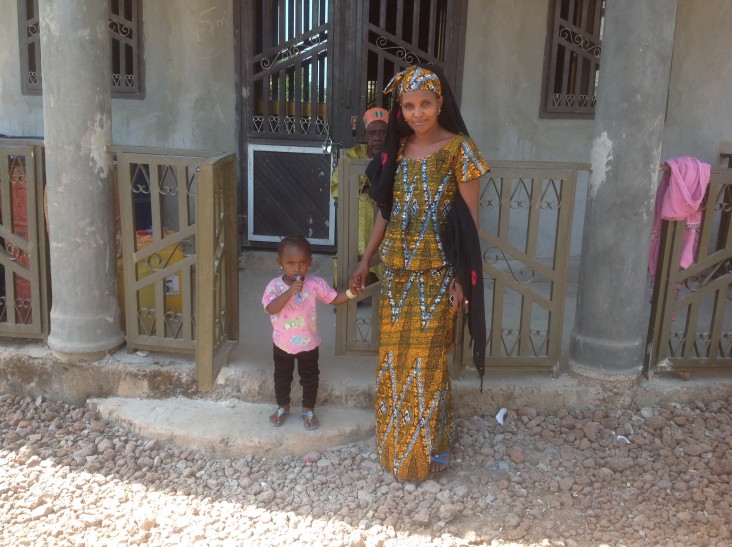
June 2017—Garambé was once one of the rural towns hardest hit with malaria in Guinea. Everyone was expected to take a turn with the disease when the rainy season started. People were resigned to having malaria, thinking that it was something they just had to accept. The nearest health center was several kilometers away, and the only antimalarial medicine available there was chloroquine.
Fatoumata Binta Diallo, 33, is a university graduate with a degree in mathematics. She is married and has three children, a boy and two girls. “When my son Mamadou Aliou was complaining of headaches, I had to walk more than 3 kilometers to get him to the Garambé health center,” she said.
The nurses could only give her chloroquine and advise her to go to the regional hospital in Labé if the boy’s health did not improve. After three days of treatment and no improvement at the Labé regional hospital, she took her son to Donka Hospital in Conakry, where he was diagnosed with typhoid and malaria and was treated for three days. A week later, he was up and running, but his illness drained his parent’s savings.
“I am a high school teacher on a daily contract. I had not reported for duty for 14 work days because of my son’s illness and was not paid for all the days I missed,” said Fatoumata Binta. “My husband is only a village tailor who struggles to make ends meet. Imagine our frustration. But now, malaria treatment is free, and the drugs are available everywhere. This is a burden off our backs.”
Garambé is a healthier place today with all 10,122 people in the community sleeping under bed nets. In 2016, USAID’s StopPalu project distributed more than 3.3 million insecticide-treated bed nets in Guinea, reaching almost 1 million households — nearly 90 percent of all households targeted.
“In a matter of weeks, the rainy season will come to the region, bringing along with it malaria. But now we know how to fight it—by sleeping under insecticide-treated nets and seeking medical care at the dispensary when we have a fever, and also keeping our environment clean,” said Fatoumata Binta. Those recommendations came from StopPalu-trained community health workers, who regularly go from house-to-house educating people on malaria and malaria prevention, treating simple malaria cases, and sending severe cases to the Garambé health center. The results have been impressive—the number of malaria cases reported through the health center has dropped drastically.
“Before the StopPalu project, we used to have more than 50 malaria cases per month, with more than half being children under 5 years. Today, with free, efficient and available treatment with artemether/lumefantrine instead of chloroquine, and free treated bed nets everywhere, we get less than 10 cases per month,” said Assietou Diallo (no relation to Fatoumata Binta), head nurse at the Garambé health center.
The project has trained more than 1,300 volunteer community health workers in malaria community case management, including the use of rapid diagnostic tests to confirm infection, the administration of antimalarial medicines to treat diagnosed cases, the referral of severe malaria cases to health facilities, and behavior change communication.
“Many of the communities we serve are very hard to reach. The people in those remote villages are very happy and grateful today because they could be tested for malaria and treated in their homes for free by community health workers who live with them, consequently saving the considerable cost of a journey to town,” said Dr. Hamidou Barry, the StopPalu regional coordinator in Labé.
USAID’s StopPalu project, which launched in 2013 and ends in September 2017, aims to reduce malaria prevalence by 50 percent by strengthening malaria prevention, diagnosis and treatment in Guinea.
LINKS







Comment
Make a general inquiry or suggest an improvement.